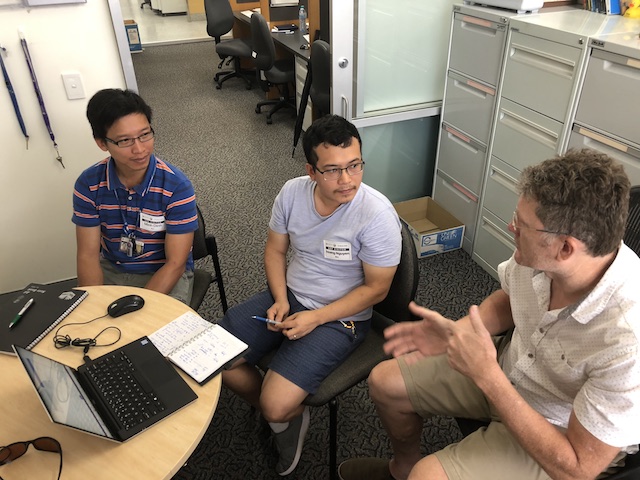
RCC is co-developing a portal to help make UQ’s supercomputer and advanced microscope for imaging-intensive science even easier to use.
Using supercomputer Wiener in the background, the portal will perform deconvolution tasks on Lattice Light Sheet Microscope-produced images. Deconvolution removes blurriness and other ‘noise’ from images.
For researchers, being able to analyse microscopy images more clearly and readily will expedite the pace of research and potential new discoveries.
In the longer term, the portal aims to provide a complete pipeline in which scientists can automate the process of converting images from UQ-hosted microscopes, deconvoluting and enhancing images using high-performance computing facilities, transferring and archiving the images using UQ’s MeDiCI data fabric, and finally visualising the results on a large-scale display system.
All UQ researchers conducting imaging-intensive science will be able to use the portal.
RCC’s Dr Hoang Nguyen is the portal’s main developer and Dr Minh Dinh is working on the portal’s pipeline. The pair are working alongside staff at UQ’s Institute for Molecular Bioscience (IMB) and the Queensland Brain Institute (QBI), and technology suppliers.
Hoang is also working with RCC visualisation expert Oliver Cairncross to make the portal’s capabilities accessible from Phoebe, a data visualisation tool Oliver developed late last year to enable researchers to analyse large volumes of microscopy data as a 3D interactive movie.
Combining Phoebe with Hoang’s portal will provide a more cohesive image visualisation and computation pipeline for UQ researchers.
The team is aiming to finish an initial version of the portal by early next month.
Any queries, please contact the RCC Support Desk: rcc-support@uq.edu.au.
Read more about Wiener, and the Lattice Light Sheet Microscope.



